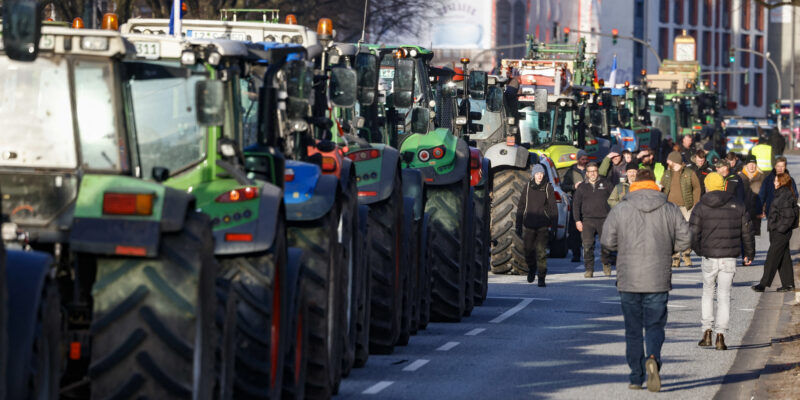Germany: Farmers’ blockade of media disrupted newspaper deliveries

Germany is facing a major nationwide media blockade, led mainly by farmers who have demonstrated fervently against the government’s proposed subsidy cuts. Criticising the poor representation of their claims in the media, farmers have blocked access to media premises to interrupt newspaper deliveries during protests lasting hours. Since the beginning of February, farmers have targeted at least three media companies and two publishing houses across the country. The European Federations of Journalists (EFJ) call for calm discussions between farmers and the media, and regret that disruption of newspaper deliveries is being used as a means of protest.
“Attacks on the press among protesting farmers are becoming more targeted and are finding more supporters” said Andrea Roth, deputy chairwoman of the Bavarian Journalists’ Association and EFJ Steering Committee member. According to the German Journalists’ Union ver.di “the message from the blockers is clear: their aim is to prevent independent reporting.“
The first event in the series of blockades took place on 2 February 2024, when 70 demonstrators blocked all three entrances to the 4Press press distribution center in Hamburg-Rahlstedt. After two-and-a-half hours, newspaper delivery vehicles were able to resume their deliveries. The Hamburger Abendblatt was one of the newspapers delayed by a few hours.
The premises of the Norddeutscher Rundfunk (NDR) radio and television station have been blockaded twice this month. On 17 February, the Lokstedt NDR was at the center of a 24-hour action by 150 demonstrators, including farmers, craftsmen and small and medium-sized enterprises, compared with 60 demonstrators at the Hannover NDR on 5 February. The same day saw a demonstration of 400 participants in front of the Allgäuer Zeitung (AZ) building in Kempten, with approximately 175 tractors intentionally preventing the newspaper from being delivered on time.
“Criticising reporting and discussing it with journalists is absolutely legitimate. But the blockages are not an attempt at conversation, but rather an organised refusal to talk” declared the German Journalists Association (DJV).
On 9 February, the media blockade escalated further. Following a six-hour demonstration by 120 farmers in front of the Axel Springer Verlag publishing house, newspapers such as the Hamburger Abendblatt, Frankfurter Allgemeine Zeitung (FAZ), and Süddeutsche Zeitung (SZ) were delivered so late that they could not be distributed in the morning.
This statement was produced by EFJ as part of the Media Freedom Rapid Response (MFRR), a Europe-wide mechanism which tracks, monitors and responds to violations of press and media freedom in EU Member States and Candidate Countries.











